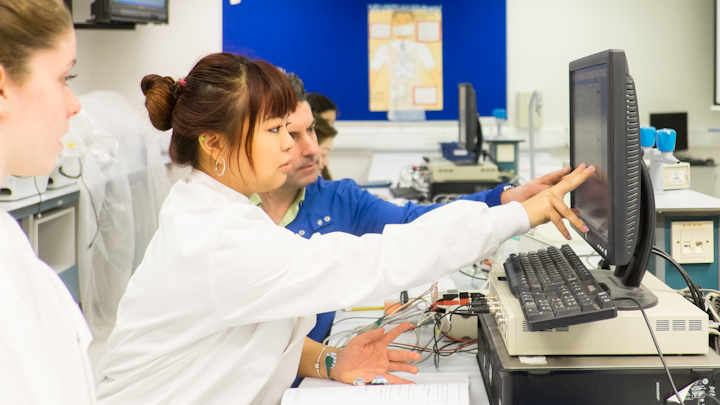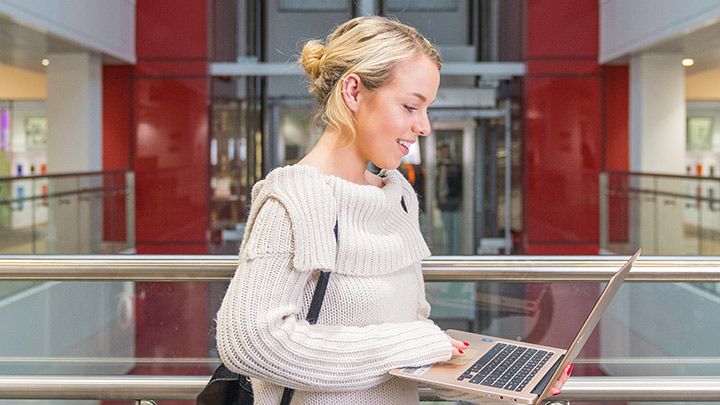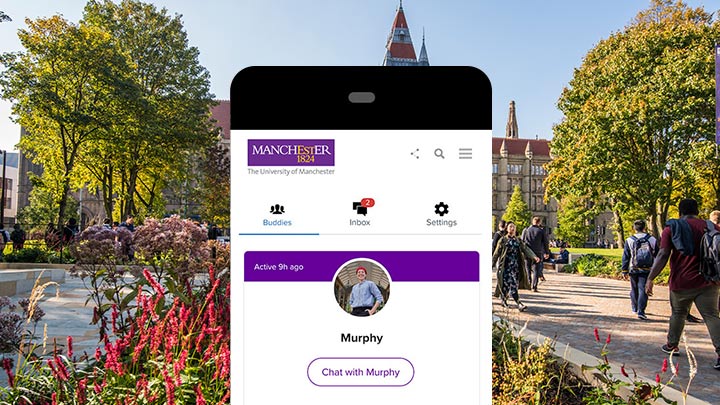Your place at Manchester
Congratulations on your offer of a place on a biosciences course at Manchester.
Choose Manchester and you'll benefit from world-class teaching from experts across a wide range of areas of bioscience.
7th in the UK for biosciences (QS 2024).
A wide range of UK and overseas placements.
Your Biosciences experience at Manchester
Do more at Manchester
Studying biosciences is a great way to explore your interests and prepare for an exciting array of careers.
You'll benefit from excellent facilities and different ways to gain experience outside of lectures.

Tour our facilities
VIDEO: Follow student Tom on a tour of the biosciences facilities at Manchester.
Talking Science: Circadian lighting
VIDEO: Hear student Grace talk about research into the impact of electric light on our bodies.
Events
Find out more about Manchester
As an offer holder, you have the opportunity to learn more about life at Manchester through our events and tours.
Once you've received an offer from us, you'll get an email with a link to book on to one of our on-campus or online events for offer holders.
These events will include an information session, a student-led campus tour (excluding accommodation), and practical demonstrations in our teaching labs.
You and your parents or guardians will be able to find out more about the course you've applied for, the University and the city. You'll have the chance to talk to staff and students, and see some of the great facilities available on campus.
Upcoming events
- 5 February 2025
- 19 February 2025
- 19 March 2025
- 26 March 2025
- 7 May 2025
You will receive, or may have already received, further communication about accommodation tours from the University’s Student Recruitment and Marketing Team. These tours will take place on the following dates this year:
- Wednesday, 12 February 2025
- Wednesday, 26 February 2025
- Wednesday, 5 March 2025
- Wednesday, 19 March 2025
- Wednesday, 2 April 2025
You will need to complete the accommodation tour form if you are interested in attending one of these tours. Please note, these are separate from offer-holder days. The only date that coincides with the Biosciences offer holder events is Wednesday, 19 March 2025. Unfortunately we are unable to change these dates.
The School of Biological Sciences’ online information sessions for 2025 entry offer holders took place on 26 February 2025 and 30 April 2025.
A student-guided campus tour can be booked for a date that suits you. Please email us to book a tour.
Your course
Courses within this subject area
Remind yourself how much your course at Manchester has to offer you.
Follow the relevant link for details about the course you have an offer for:
Courses
- Biochemistry BSc
- Biology BSc
- Biology with Science and Society BSc
- Biomedical Sciences BSc
- Biosciences with a Foundation Year
- Biotechnology BSc
- Genetics BSc
- Immunology BSc
- Life Sciences BSc
- Medical Biochemistry BSc
- Medical Physiology BSc
- Microbiology BSc
- Molecular Biology BSc
- Neuroscience BSc
- Pharmacology BSc
- Zoology BSc
Study options
Many of our BSc courses are available with a variety of four-year study options.
Your next steps
Accept your offer
Received all of your offers? You can accept your offer of a place at university now via UCAS Hub.

Chat to a student
Discover what it's like to study at Manchester by talking to a current student online.

Support for you
Access support, finance and accommodation guides to help you prepare for life at university.

Contact us
Email: ug.biosciences@manchester.ac.uk
Facebook: @bmhuom
Twitter: @fbmh_uom
Instagram: @fbmh_uom
YouTube: @fbmhmanchester

